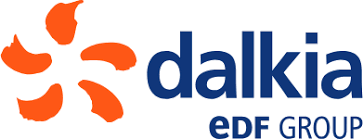Dalkia is a subsidiary of the global utility company EDF Group and a leading provider of energy services, with operations across France and further afield. For over 80 years, they have been developing renewable and recovered energy sources, while helping their clients achieve energy savings and reduce their CO2 emissions. Dalkia is also a close-knit community that stands by its clients and partners through thick and thin. Together, they are rising to the climate challenge by implementing local solutions that are innovative, cost-effective, eco-friendly—and practical.
The challenge faced by IMTECH (now Dalkia) was to align strategy and behaviour across the organization through a tiered management system. This initiative aimed to ensure that every level of the company was working in harmony with a clear vision and shared goals. The goal was to create a seamless process emphasizing Quality, Planning & Production Control, and Safety across all projects, while also instilling a cultural shift towards continuous improvement and excellence in project delivery.

At IMTECH, a transformative journey aimed to align strategy and behavior through a tiered management system. This initiative sought to harmonize every level of the organization with a clear vision and shared goals. A core team was trained to implement this system across the company, ensuring sustainable change and ongoing benefits.
Known as "The IMTECH Way," the initiative committed to continuous improvement across 40 project locations, applying lean management principles throughout the project lifecycle—from Pre-Construction to Supply Chain. The goal was to create a seamless process emphasizing Quality, Planning & Production Control, and Safety.
Success hinged on a cultural shift, supported by a comprehensive learning program to foster excellence in project delivery. This change aimed to make IMTECH a benchmark for quality and efficiency.
During a virtual mapping of the pre-construction process, 132 issues were identified related to change control, handovers, scope of work, and other areas. This led to the development of six priority project charters focusing on Project Strategy, Scoping & Analysis, Planning, People, Design for Manufacture, and Review Point management.
The initiative resulted in notable improvements, including enhanced plan attainment, which surged from 25% to 85%. The project benefited from improved visibility with daily, weekly, and monthly KPIs available for teams and individuals. An effective escalation and communication process was established, leading to greater team engagement and increased accountability. There was also a significant improvement in single-touch task completion, with all aspects made visual and maintained regularly.